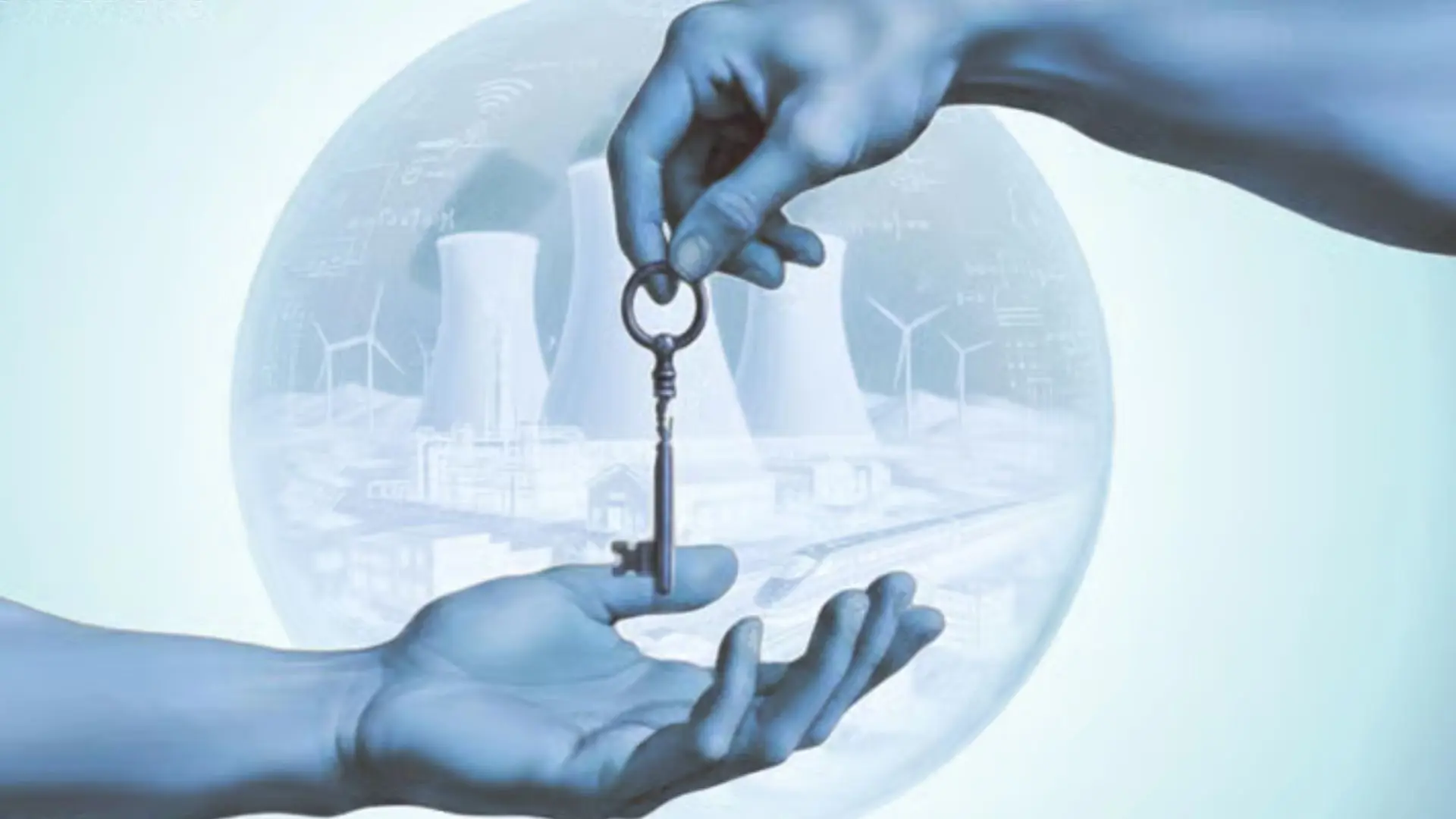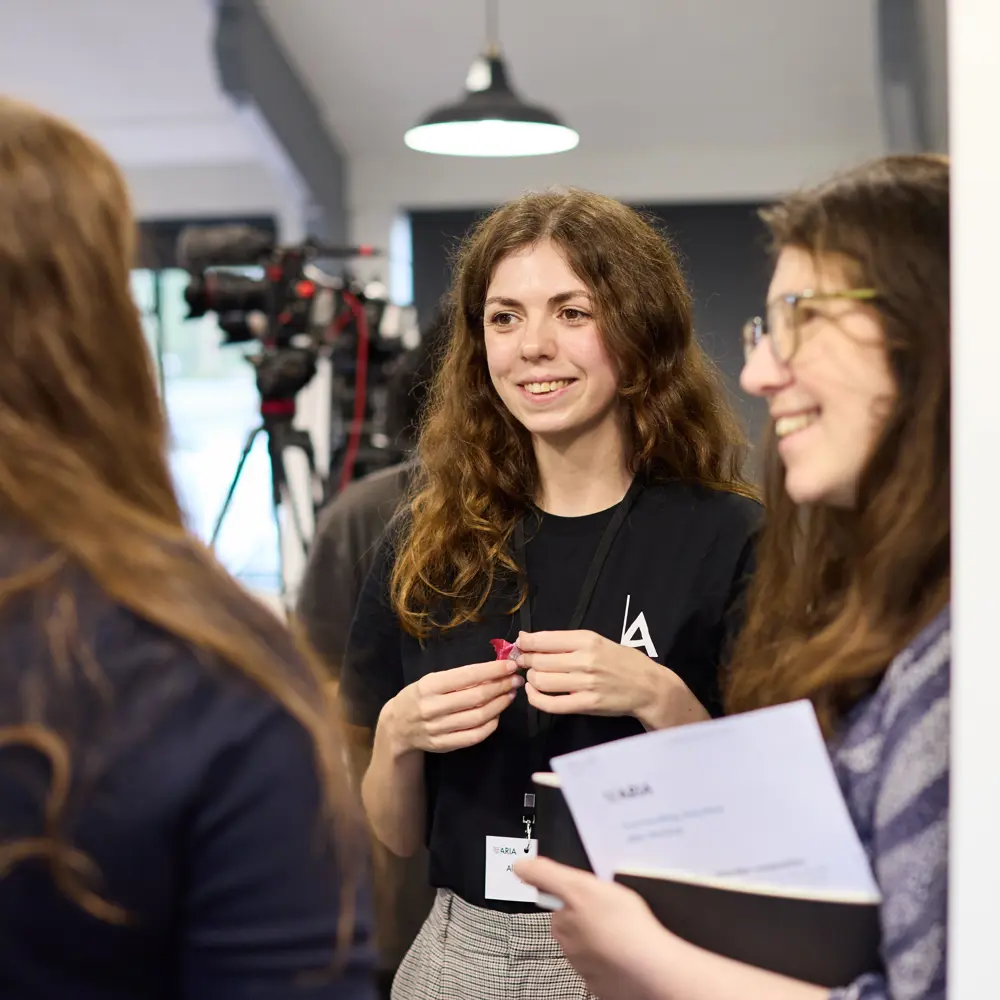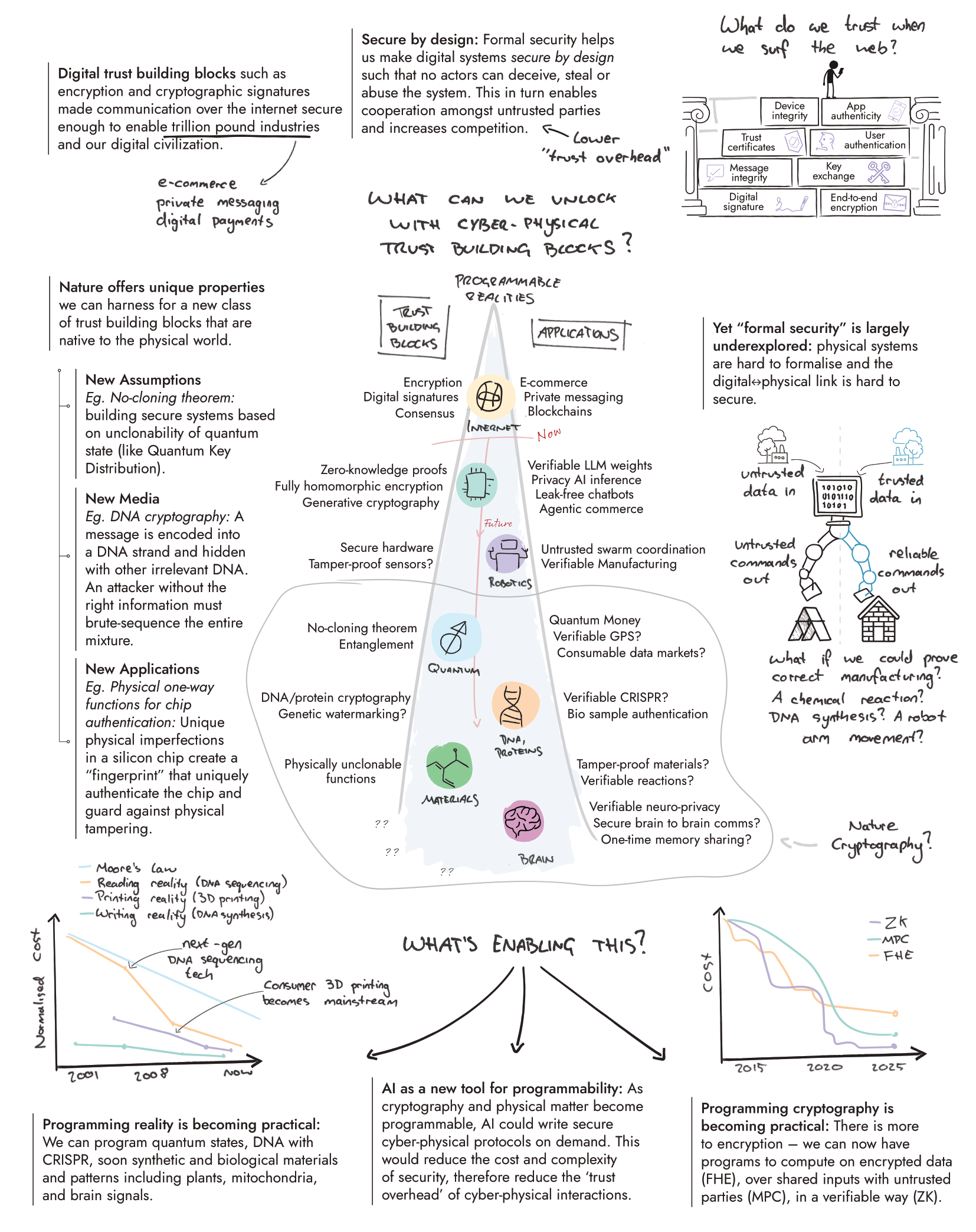What if trust infrastructure inspired by natural phenomena could unlock the cyber-physical economy?
Defined by our Programme Directors (PDs), opportunity spaces are areas we believe are likely to yield breakthroughs.
In Trust Everything, Everywhere, we believe new trust infrastructure that extends formal security reasoning into the physical world will unlock trillion-pound cyber-physical markets and a society free to trust everything, everywhere.
Beliefs
The core beliefs that underpin this opportunity space:
Creating a new trust infrastructure will unlock the cyber-physical economy. The trust building blocks that enabled today’s £24-trillion digital economy, like encryption and cryptographic signatures, do not extend to the physical world.
Formal security reasoning is key to designing new cyber-physical trust building blocks: rooted in different assumptions (e.g. quantum physics instead of computational hardness), and living in alternative informational substrates (e.g. DNA instead of bits).
AI will make secure cyber-physical interactions accessible to everyone. The next generation of trust infrastructure will allow AI systems to generate customised, on-demand protocols in situ for any given cyber-physical interaction, spanning atoms, molecules, waves, and bits.
Programme: Scaling Trust
To build a programme within an opportunity space, our Programme Directors direct the review, selection, and funding of a portfolio of projects.
Backed by ~£50m, our Scaling Trust programme seeks to create the capability for AI agents to securely coordinate, negotiate, and verify with one another on our behalf.
We are now seeking proposals from teams to develop open-source coordination infrastructure and perform fundamental research that moves us from empirical to theory-driven guarantees in agentic coordination.

Trust Everything, Everywhere Hackathon: 7-8 March 2026
The Society for Technological Advancement (SoTA) are delivering a hackathon as part of our discovery funding. The event will bring together earnest, high-agency and industrious individuals to explore making AI deployment safe, secure and trusted in an increasingly programmable cyber-physical reality.

Join the conversation
The Trust Everything, Everywhere Discord server provides a space for collaboration and discussion amongst ARIA funded projects as well as the wider community, where we encourage members to share insights, ideas, and build in public.
All official updates related to the Trust Everything, Everywhere opportunity space will be published on the ARIA website.
Please note that we will not be able to answer any questions regarding open funding calls in this forum. If you have any questions, please use the chat function on the relevant funding pages for the quickest response. It can guide you to the right information or connect you with the ARIA team if needed.
Resources
A compiled, but not exhaustive list of works helping to shape our view and frame the opportunity space (for those who want to dig deeper).
Sign up for updates
Stay up-to-date on our opportunity spaces and programmes, be the first to know about our funding calls and get the latest news from ARIA.

